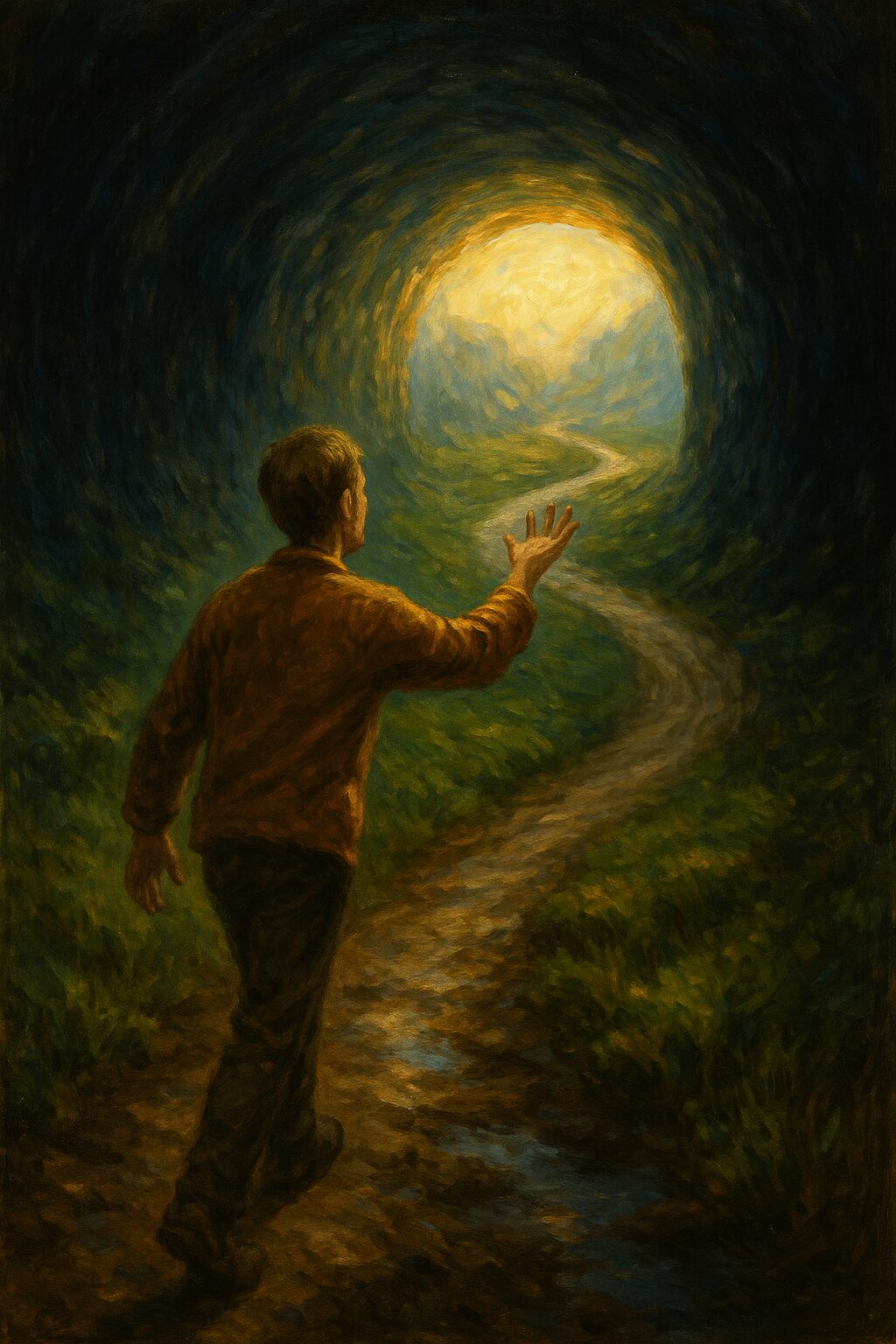Happiness once said to me,
“Walk this path and you will find paradise.”
So I rushed, I ran and I suffered,
Blind to all but the promised reward.
Until I met sadness who said to me,
“Don’t rush there, man or you will find nothing.”
Of course I accused him of being a liar,
A rain on my sunny dreaming.
So I set my mark and walked the dark tunnel,
Each step echoing with hope and fear,
Until I found my paradise,
It seemed so near.
I raised my hand to touch it,
Fingers trembling with desire,
And I found nothing but mud,
My dreams sunk in earthly mire.
Yet in that mud, a seed might grow,
Of wisdom earned, not freely given.
Perhaps true joy lies not in chasing,
But in living each moment, fully.
Filed under: 🜁 Self – tracing the inner landscapes of thought, feeling, and becoming.
